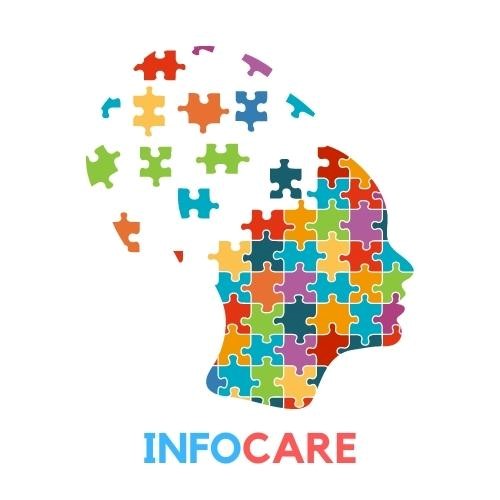
INFO-CARE
Supporting Informal Caregivers of People with Dementia
This project endeavors to raise awareness among partner countries and at a European level about the significance of providing informal training to support caregivers of individuals with dementia. The goal is to develop valuable training materials that will enhance assistance for families and people affected by dementia.
Target groups include caregivers, people with dementia, NGOs, nursing homes, social workers, nurses, and volunteers.
Aim of the Project
– Raise awareness amongst partner countries and at a European level on the importance of delivering informal trainings to support people looking after patients with dementia;
– Develop useful training materials that can be further used aiming better assistance to families and people with dementia;
– Create a European network for the exchange of best practices, essential for future policymakers and for planning better strategies on the topic of dementia;
– Develop free and open-for-all learning materials to ease the social and economic burden of families with people suffering from dementia;
– Enhance the quality of support that families and professionals working with PwD provide them, thanks to mind-stimulating activities based on non-formal education methodologies and cognitive stimulation;
– Build awareness of the lesser-known symptoms of dementia and develop greater empathy towards people suffering from dementia, eliminating the stigma around dementia within society.
Activities
R1 – Training on Cognitive activities – Mind- Stimulating Activities for Dementia Patients;
R1 provides families, adults and legal guardians of PwD with useful tools, tips, and activities based on non-formal education to stimulate the cognitive abilities in case they deteriorate. Moreover, it clarifies and helps the carers in the identification and recognition of the symptoms as well as will give valuable tips for prevention.The development of the training contents is materialised through 4 practical modules:
Module 1 – Recognising the symptoms
Module 3 – Activities Early Dementia
Module 4 – Activities Advanced Dementia
R2 – Remote caring – Mind-Stimulating Activities through new technologies
The anti-COVID restrictive measures have intensified the stress and burden for those families who take care of a relative suffering from dementia. The employment of new technologies and digital devices in the daily care activities can provide valuable help. In particular, this project result equips the carers of PwD and related disorders with a practical response to social distancing and isolation, due to the current health crisis. More specifically, R2 adapts the activities of R1 so they can be performed remotely and through digital devices. Two practical modules are developed to respond to this purpose:
Module 2 – Remote and Digital Stimulating Activities for Dementia Patients
R3 – Development of support groups for relatives and legal guardians of people with dementia
As stated by the WHO “family caregivers of people living with dementia are more likely to develop major depression, anxiety disorders, and physical health disorders among others and they have a higher mortality rate compared to the general population”. For this reason, the aim of the R3 is to support informal caregivers to create support groups, in order to share experience, best practices, and to encourage them to overcome the stigma surrounding people with dementia. R3 is materialised in one step-by-step manual on how to develop support groups for informal caregivers of people with dementia and a case collection booklet:
Manual: Development of Support Groups for Informal Caregivers of People with Dementia
Booklet: Collection of Peer Support Initiatives
Partners
Fundación Sorapán de Rieros
EURASIA Institute
Greek Association of Alzheimer’s Disease and Related Disorders (Alzheimer Hellas)
Austrian Association of Inclusive Society (AIS)
Danish Committee for Health Education
Social Media
Website: https://www.infocare.me/
YouTube: https://www.youtube.com/@infocareproject8996
Facebook: https://www.facebook.com/infocareproject
